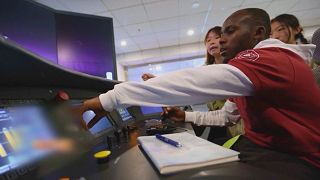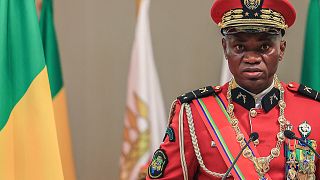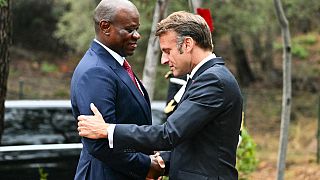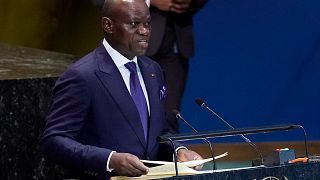Gabon
Gabon's Omar Bongo University (UOB), in the capital, is the country's main seat of learning. Still, the start of the academic year has once again been postponed.
The decrepit walls, are just the tip of the iceberg, students here say, hinting at issues "below the surface", that include corruption, grants for the neediest not being paid and teachers sometimes going several months without receiving their salary.
Last August's military takeover has been welcomed by some.
"I don't see any prospects, but we are aware that things can't change from one day to the next," the 25-year-old, who is in the third year of a degree course, said.
The August 30 ousting of President Ali Bongo Ondimba -- who took over when his father Omar died in 2009 after nearly 42 years in power -- came moments after he was proclaimed the winner of disputed elections.
Coup leader General Brice Oligui Nguema was swiftly sworn in as transitional president.
He has promised to hand back the country to civilian rule with elections after a transitional period but has not given a date.
Oligui has also pledged to introduce reforms to help the poor and young, including in education.
Ali Bongo left behind an education system in ruins after years of underfunding and what the new military leaders say was disastrous management by corrupt governments.
At the (UOB), created in 1970, classrooms and lecture halls are crowded but the chance of students finding a job after their studies are slim.
"There were 2,000 students in the first year of the course. It was really first come, first served to get a seat in the lessons," Ovono Obiang said.
'Lacked everything'
Some are upbeat but also impatient, like many Gabonese who cheered the coup leaders for freeing the country from the clutches of the Bongo family.
Sarah Emmanuel, who is studying for a law degree, said under the former regime "we lacked everything at university".
"It will inevitably take time to change things but I am optimistic with the announcements of reforms and notably more resources to help us enter the job market," she said.
The challenges are considerable.
Gabon has one of Africa's highest unemployment rates, with one fifth of the active population out of work, rising to a third for under-25s, the United Nations said in 2020.
In Africa's third-richest country in terms of per-capita GDP, one in three lives below the poverty line, according to the World Bank.
"It's not just a financial problem. There is no match between our training and the expectations of companies at the end," Ovono Obiang said.
Noel Bertrand Boundzanga, a UOB university lecturer and researcher, said in the government daily L'Union last week, that the problem was not so much "the nature of the training as the capacity of an economy to generate factors favourable to job creation".
Future prospects
Gabon's wealth from its abundant oil reserves and other natural resources was kept in the hands of a small elite under the Bongos.
Critics point to a failure to diversify the economy to make it less dependant on oil, manganese and timber by developing a production or manufacturing sector.
"Future prospects were very restricted because there aren't a lot of opportunities after studying," economics student Marcus Mouloud, 24, said.
"With the new institutions, we can dream bigger and think that we will be saved compared to other generations of young people".
Law student Karly Elislande says she hopes the country's new leaders will build student accommodation and even create a university in every province.
That would relieve the pressure on the capital and mean not all students "come to Libreville and overload the first and second years", she said.












01:15
UN court backs Equatorial Guinea in disputed islands case with Gabon
Go to video
Gabon: former president Ali Bongo and family go into exile in Angola
01:15
Gabon’s constitutional court confirms Nguema’s landslide presidential victory
00:59
Namibia will offer free university education starting in 2026
Go to video
Oligui Nguema: A breakthrough or continuity for Gabon? [Business Africa]
00:57
Gabon: Oligui Nguema clinches a landslide win